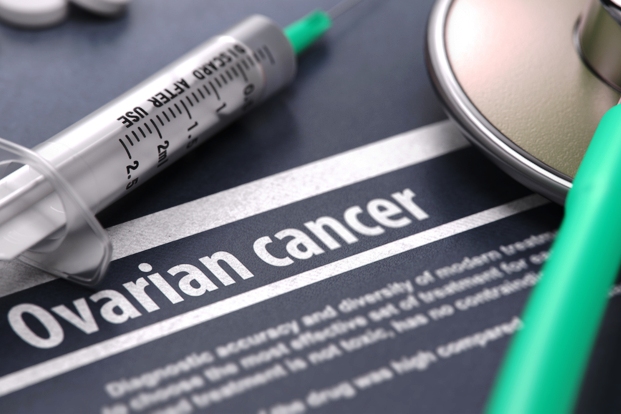Ovarian cancer: Early symptoms, Detection, and treatment
Apr 19, 2022
Ovarian cancer is one of the most lethal gynecologic malignancies. More than half of women with ovarian cancers have metastatic disease at the time of diagnosis because early-stage disease is usually asymptomatic – without any signs or symptoms.

Signs and Symptoms associated with Ovarian Cancer:
Advanced stage ovarian can often have symptoms, but they are usually nonspecific and not recognized as symptoms of cancer. The most frequent symptoms are:
- Back Pain
- Fatigue
- Abdominal Pain/Bloating
- Constipation
- Urinary Symptoms
- Pelvic Pain
- Increased Abdominal Size
- Difficulty Eating
- Early Satiety
Signs associated with advanced ovarian cancer: In addition to these nonspecific symptoms, these patients may present with paraneoplastic syndromes (autoimmune symptoms) such as subacute cerebellar degeneration; sudden onset of seborrheic keratoses (Leser-Trélat sign); or unexplained spontaneous, recurrent, or migratory venous thrombotic events (Trousseau syndrome).
Other symptoms associated with advanced ovarian cancer: Advanced disease may present with symptoms of regional spread or metastasis, such as bowel or ureteral obstruction, or cough or shortness of breath. An exception to the late presentation of ovarian cancer symptoms is sex cord–stromal tumors, which produce hormonal manifestations such as precocious puberty, abnormal uterine bleeding, and virilization.
Important points to keep in mind for Ovarian Cancer:
If you have a family history of any type of cancer, you need to be more informed about the signs and symptoms associated with cancer. Keep yourself informed about the 10 caution signs of cancer and consult a specialist at the earliest incase of ay abnormality.
Please note that the incidence of ovarian cancer is quite high in women in India and majority of the times the same is detected in the last advanced stages thereby reducing the scope of treatment and survival.
Surgery and chemotherapy are generally used to treat ovarian cancer









